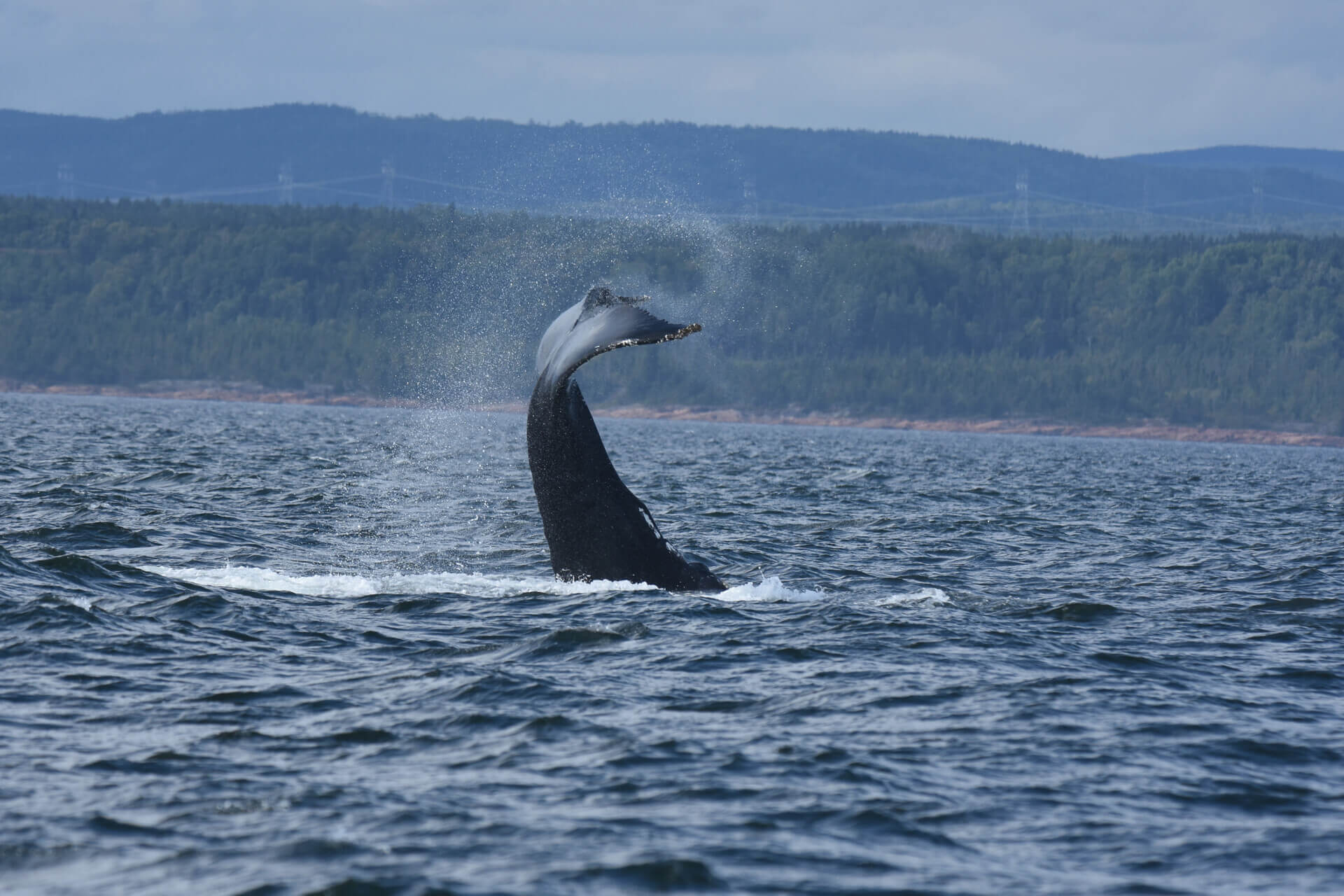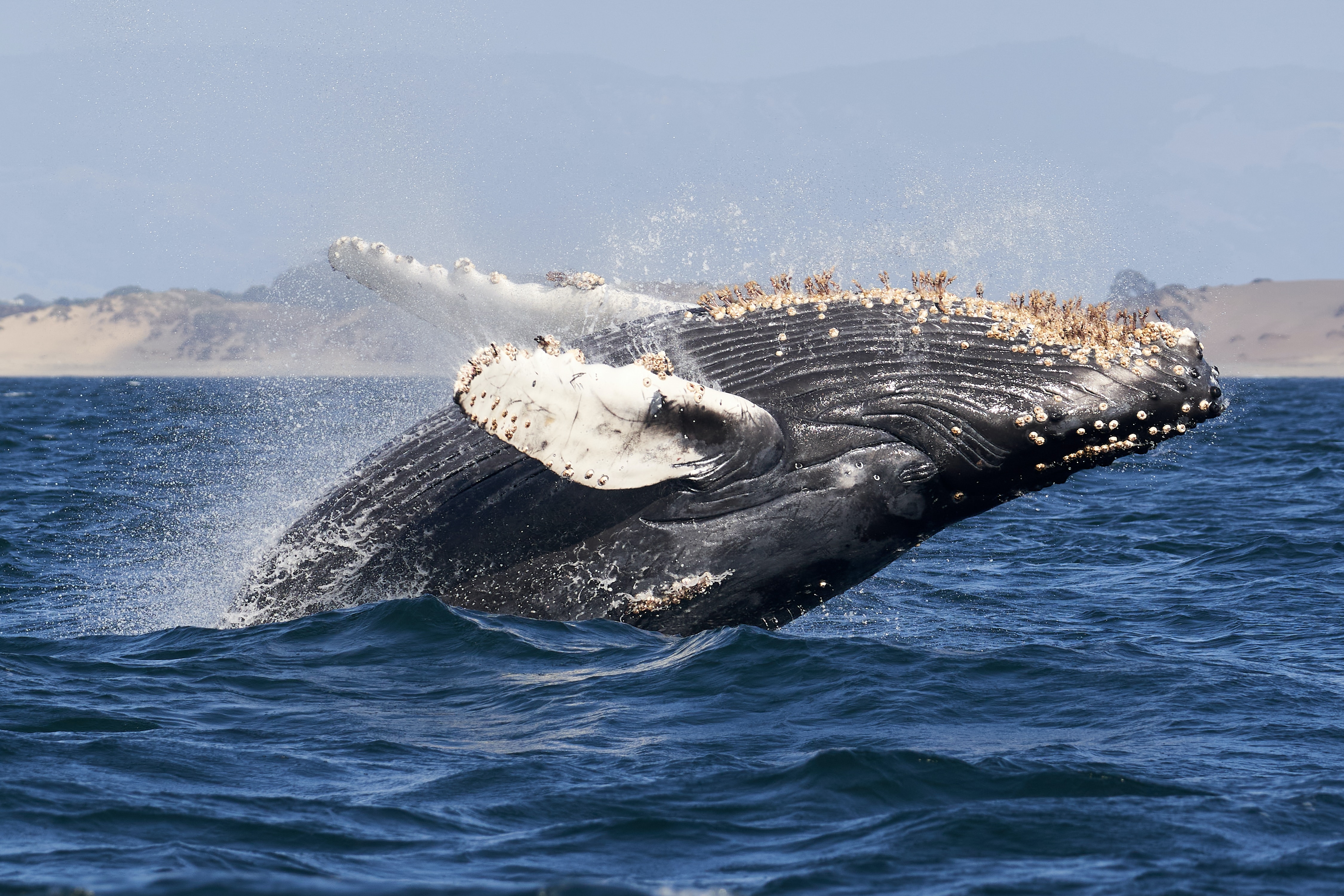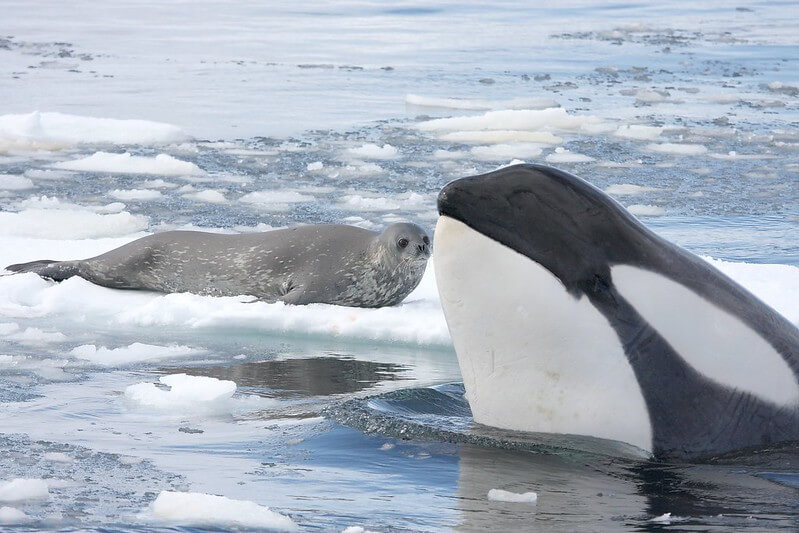A beluga mother typically nurses her offspring for 18 months. At that point, the calf’s teeth are very small or non-existent. The mother can continue nursing up to thirty months, until the young is able to consume solid prey. Belugas’ teeth are fully developed by the age of two. They are not used to chew or tear prey, but rather to catch the prey that are sucked in and swallowed whole.
Beluga feed near the seabed, preying on fish such as capelin, herring, smelt, and sand lance; eels; as well as invertebrates such as squid and crustaceans. They also hunt in the water column near the surface, or by treading water against the current. These various feeding and hunting techniques will be transmitted to the calf mainly by its mother. This is probably why young belugas stay with their mothers for long periods, sometimes up to sexual maturity. In the summer range, females form large communities in which they care for newborns and young. These communities gravitate to traditional territories in which they specialize to find the necessary resources for their needs and those of their young.





